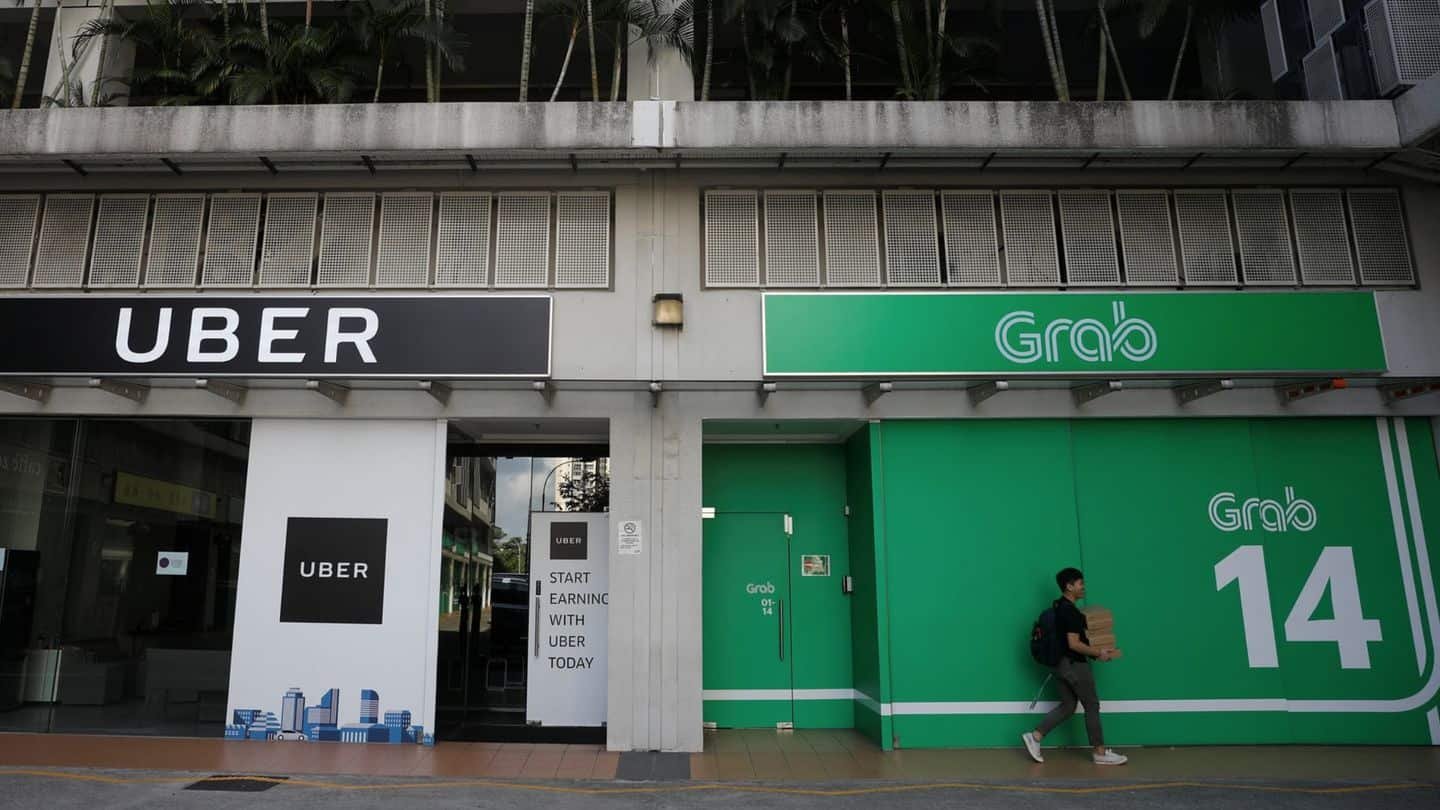
Uber exits South-East Asia, selling its operations to rival Grab
What's the story
After exiting China and Russia, Uber Inc. is now selling its South-East Asia operations including ride-share and food delivery business to regional rival Grab. It is believed that Japan's SoftBank Group Corp., a major investor in both Uber and Grab, pushed for this consolidation in order to improve revenues by reducing competition in the South-East Asian ride-hailing market. Here's more on Uber's latest retreat.
The Agreement
About Uber's latest retreat
Under the agreement, Grab will acquire all of Uber's operations including food delivery service UberEats. The loss-ridden US ride-hailing giant will retain a 27.5 percent stake in the Singapore-based company and its Chief Executive Officer, Dara Khosrowshahi will also join the Grab's board. While the value of the deal has not been made public, both the companies described this consolidation as a win-win agreement.
Win-win situation
For both the companies, and their customers
"Today's acquisition marks the beginning of a new era. The combined business is the leader in platform and cost efficiency in the region," said Grab CEO Anthony Tan. Uber CEO Dara Khosrowshahi said, "It (this deal) will help us double down on our plans for growth as we invest heavily in our products and technology to create the best customer experience on the planet."
Information
About Grab: South-East Asia's dominant ride-hailing service
Started in 2012, Grab has so far raised $4 billion. Today, with more than 86 million mobile app downloads, the company offers a wide range of ride-hailing services in 191 cities across SouthEast Asia. It also has GrabFood, a food delivery service in two countries.
Reason
Why is Uber exiting international markets?
Uber's exit from key international markets is seen as a way to cut back on losses, ahead of its planned IPO in 2019. Since its inception in 2009, Uber has spent $10.7 billion i.e. two thirds of the money it received from investors. Last year alone, Uber lost $4.5bn and had sold its businesses in China and Russia to Didi and Yandex respectively.
Bumpy road ahead
Can Uber live up to the India challenge?
Closer home, Uber faces fierce competition from Ola which again has Masayoshi Son's SoftBank as its largest investor. Here, the rides profits are negligible, driver wages have collapsed and the customer is always looking for a cheaper option. Given those parameters, if SoftBank engineers Uber's retreat from India, it can pacify disgruntled drivers and allow Ola to raise prices soon after the consolidation.